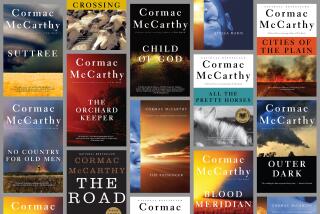Amazon’s muddy reasoning
There is a world of difference between a right to speak and an obligation to publish. That distinction became an issue this week when Amazon.com, the world’s largest online book distributor, succumbed to pressure and pulled an electronic book on pedophilia.
The book is the work of one Philip R. Greaves II, a self-evidently disturbed Colorado man who catalogued various perversions and inanities in “The Pedophile’s Guide to Love and Pleasure.” Greaves is entitled to his shameful views — though certainly not to act on them — and the 1st Amendment affords him broad latitude to share those ideas by talking about them or even writing a book about them. Were the government to seize Greaves’ book, it almost certainly would be violating his rights.
But Amazon is not the government. It has no more obligation to distribute offensive material than a publishing house has to print it. Amazon may refuse to sell work that it considers stupid or trite or that it finds objectionable. Like most publishers or distributors, Amazon opts not to interpose its politics or predilections on its inventory. As it said in a statement this week, the company “believes it is censorship not to sell certain books simply because we or others believe their message is offensive.” Some people object to “Lolita” or “Lady Chatterley’s Lover,” but Amazon would be foolish and narrow-minded to let squeamish responses to great literature stand in the way of its distribution.
That hands-off approach is generally admirable. Still, it’s worth remembering that Amazon can impose any rules it chooses. It can refuse to distribute a book with instructions on how to make a bomb or assassinate an official. And it can refuse to carry a guidebook for pedophiles without damage to the 1st Amendment. What to publish or sell is a business decision, not a constitutional one. (If, by contrast, the government were to order Amazon not to carry certain types of books, that would violate the Constitution.)
Amazon made a bit of a hash of this issue, first by carrying the book, then by dropping it under pressure, all while giving precious little insight into how it was making its decisions. Child welfare advocates howled when they first learned that the book was being offered; misguided free speech advocates complained when it was pulled. Indeed, Amazon’s other offerings suggest that a certain muddiness remains. The ever-popular “How to Kill” is still listed on the site.
More to Read
Sign up for our Book Club newsletter
Get the latest news, events and more from the Los Angeles Times Book Club, and help us get L.A. reading and talking.
You may occasionally receive promotional content from the Los Angeles Times.






